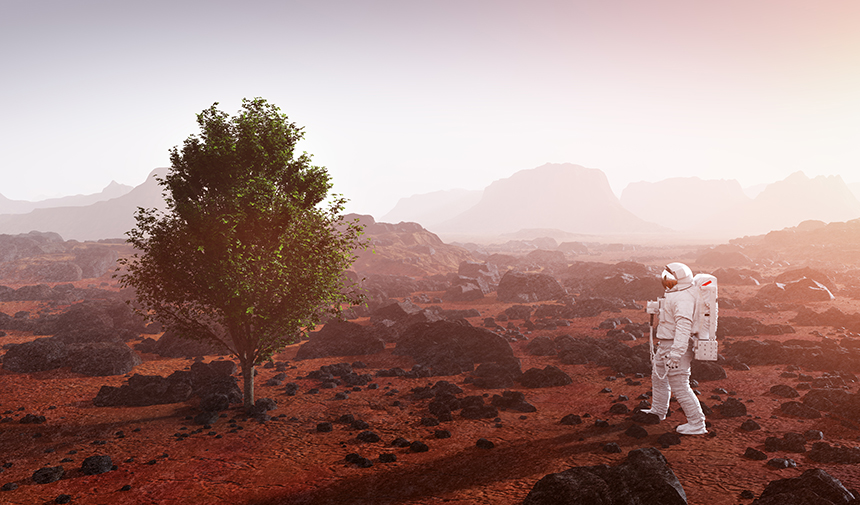Space colonization has become an important goal for the future of humanity. In particular, human settlement on Mars and other planets is of great interest to the scientific community and technology companies. This goal has become the center of new discoveries, technological advances and international cooperation. Humanity is taking important steps to realize the dream of creating habitats beyond Earth.
Mars is one of the most popular destinations for space colonization. Known as the Red Planet, Mars is one of the planets with the closest resemblance to Earth. Organizations such as NASA and SpaceX are working intensively on projects to send humans to Mars. One of the most remarkable of these projects is SpaceX founder Elon Musk’s plan to organize manned missions to Mars. Musk aims to launch the first manned Mars mission in the late 2020s. SpaceX is developing a massive spacecraft called Starship for this purpose.
Projects to send humans to Mars face many challenges. First, Mars’ harsh atmosphere and surface conditions are not suitable for human life. Therefore, advanced technologies are needed to ensure the safety of the astronauts who will be sent to Mars. At the same time, basic needs such as life support systems, food production and water supply need to be met on Mars. Research in these areas provides important information to determine whether long-term human life on Mars is possible.
In addition to Mars, the Moon is also seen as an important target for space colonization. Due to its proximity to Earth, the Moon could be an ideal platform for space exploration and colonization. NASA’s Artemis program aims to return humans to the Moon in 2024 and to create a sustainable habitat on the Moon in the long term. The program envisions a permanent base on the lunar surface and a springboard for missions to Mars.
Other planets and moons are also being explored for space colonization. For example, Jupiter’s moon Europa may harbor oceans of liquid water beneath its icy surface. This means that Europa could be a potential habitat. The European Space Agency (ESA) and NASA are planning exploration missions to Europa. These missions aim to study Europa’s surface and the oceans beneath it.
Space colonization is not limited to technological and scientific challenges. It is also a process that requires international cooperation and political decisions. Issues such as the use of space resources, space law and the ethical dimensions of life in space are areas that require the international community to work together. In this context, the United Nations and other international organizations are establishing frameworks for space colonization and the fair and sustainable use of space resources.
Space colonization can also offer solutions to the environmental and population challenges facing humanity. Earth’s limited resources and growing population are accelerating the search for alternative habitats. Establishing colonies in space can both reduce the pressure on Earth and enable humanity to discover new resources. Furthermore, space exploration and colonization projects can contribute to the development of new technologies and their application on Earth.
In conclusion, space colonization is an exciting and challenging goal for the future of humanity. Studies for human settlement on Mars and other planets are gaining momentum with new discoveries and technological advances. Space colonization is a process that brings not only scientific and technological advances, but also international cooperation and ethical debates. Humanity must be prepared for the challenges and opportunities it will face in space as it moves towards creating habitats on this new frontier.



